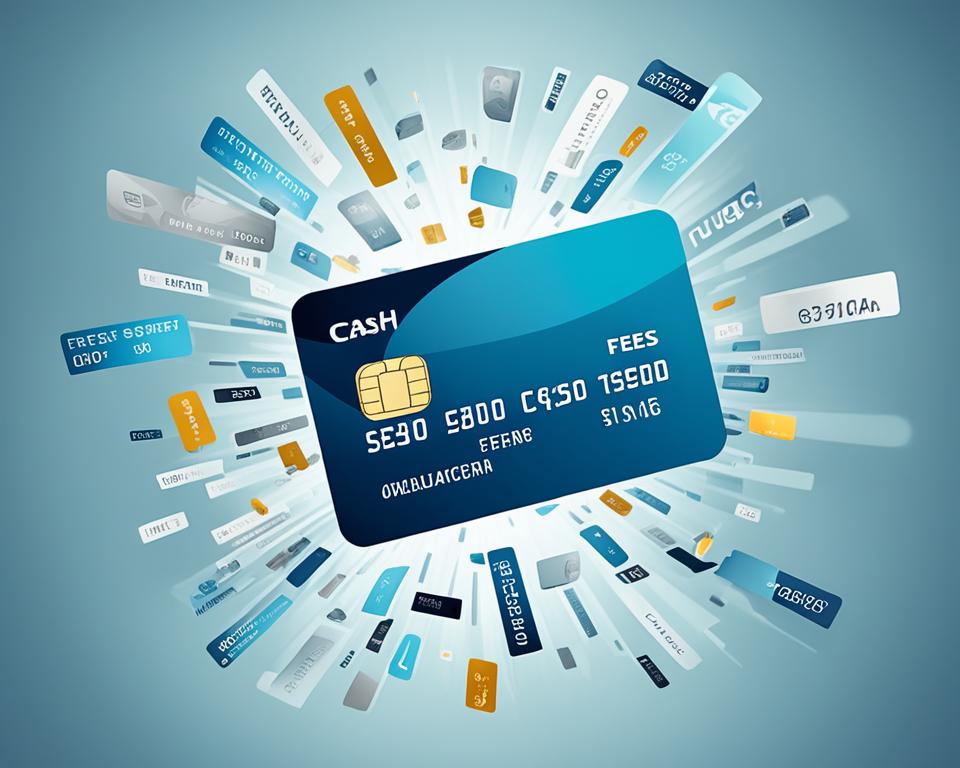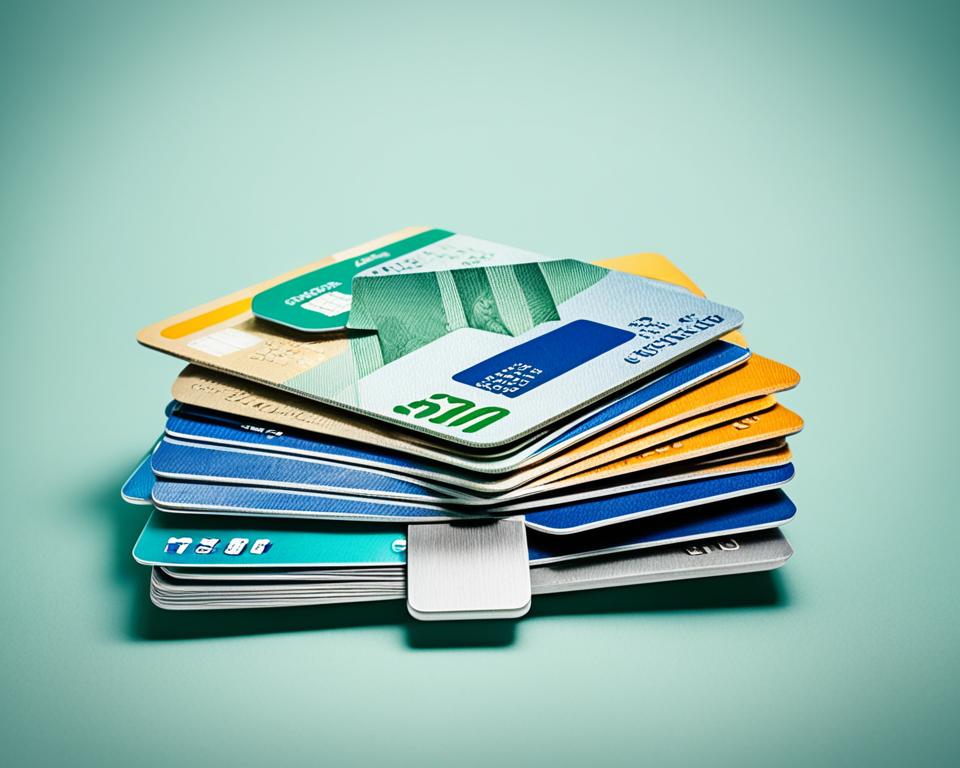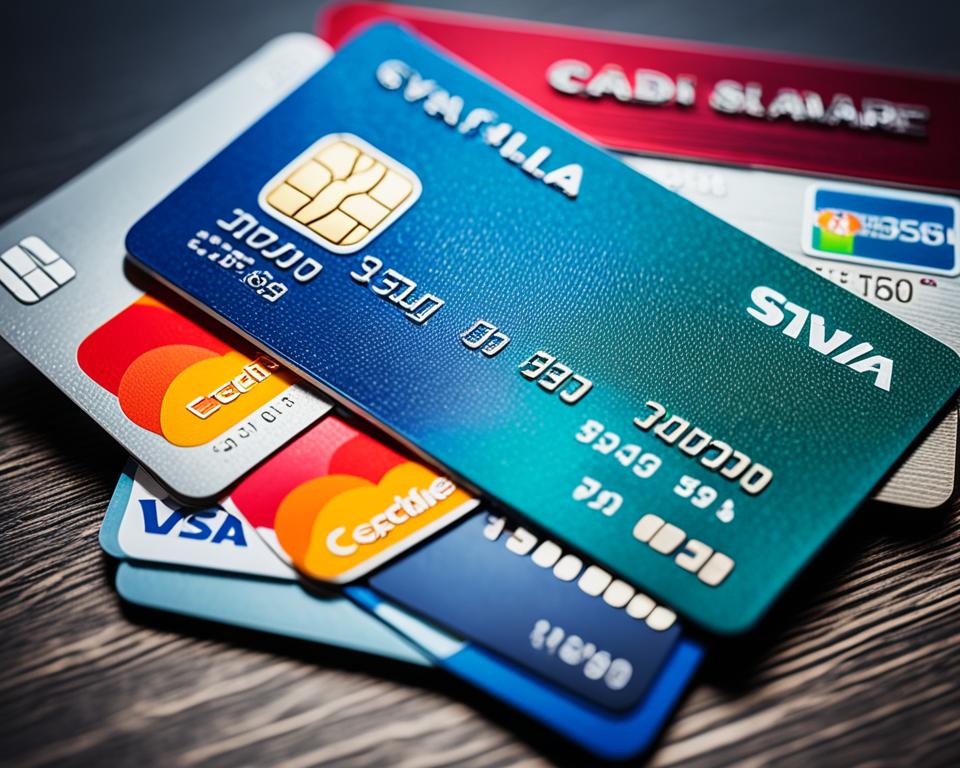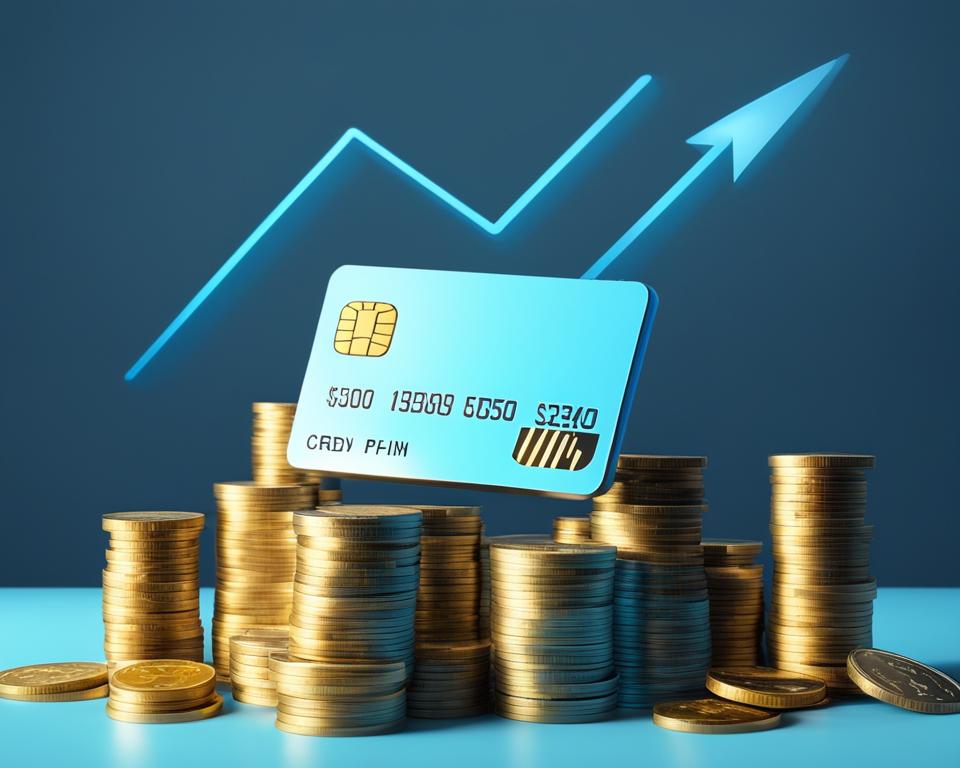When it comes to managing finances, credit cards play a crucial role in today’s society. However, understanding how credit cards work is essential to make informed financial decisions. Whether you’re a seasoned credit card user or just starting your credit journey, this article will provide you with the necessary knowledge about credit card basics.
Credit cards offer convenience and flexibility, allowing users to make purchases and pay bills without carrying cash. But how do they function? Unlike debit cards that use funds directly from a checking account, credit cards operate on a line of credit provided by the issuer. This credit limit determines the maximum amount you can spend. As you make purchases, your available credit decreases. To continue using the card, you need to make payments to restore your available credit.
Credit cards come in different forms. Secured credit cards require a cash deposit as collateral, providing a lower-risk option for individuals with limited credit history. Unsecured credit cards, on the other hand, don’t require a deposit but may have stricter eligibility requirements.
Several factors influence your credit card usage and overall credit health. Payment history, credit utilization, credit age, credit mix, and new credit inquiries all impact your credit score. Understanding these factors can help you make smart decisions when it comes to using credit cards.
In the following sections, we will delve deeper into how credit cards work, the different types available, associated fees, and the pros and cons of credit card usage. Whether you’re considering your first credit card or looking to optimize your existing card usage, this article will provide the knowledge you need to navigate the world of credit cards.
Key Takeaways:
- Credit cards offer convenience and flexibility for making purchases and paying bills.
- Credit cards operate on a line of credit provided by the issuer.
- Payment history, credit utilization, credit age, credit mix, and new credit inquiries affect your credit score.
- There are different types of credit cards, including secured and unsecured options.
- Understanding credit card basics is essential for managing your finances wisely.
What Is a Credit Card?
A credit card is a versatile financial tool that allows users to make purchases, pay bills, and withdraw cash. It offers the convenience of accessing funds without carrying physical money and provides a useful line of credit for short-term borrowing. Understanding the basics of credit cards and key terms associated with them is crucial for financial management.
Credit Card Basics
Let’s dive into the essential credit card terms:
| Term | Definition |
|---|---|
| Unsecured Credit Card | Does not require collateral or a security deposit. Approval is based on creditworthiness. |
| Secured Credit Card | Requires a cash deposit as collateral, which serves as the credit limit. |
| Credit Limit | The maximum amount a cardholder can borrow on the card. |
| Interest Rate | The cost of borrowing money on the card, expressed as an annual percentage rate (APR). |
| Minimum Payment | The minimum amount required to be paid by the cardholder each month to avoid penalties. |
| Statement | A monthly summary of all transactions, balances, and payment due dates. |
| Grace Period | The timeframe during which cardholders can avoid interest charges on purchases by paying the statement balance in full. |
| Cash Advance | A withdrawal of cash from the credit card, subject to additional fees and interest. |
| Annual Fee | A yearly fee charged by some credit card issuers for account maintenance. |
Having a clear understanding of these credit card basics will empower individuals to make informed financial decisions and navigate the world of credit responsibly.
How Credit Cards Work
Credit cards play a crucial role in our everyday lives, allowing us to make purchases and pay bills with ease. But have you ever wondered how credit cards actually work? In this section, we’ll delve into the fascinating world of credit card transactions, the billing cycle, and the grace period.
Credit Card Transactions
When you use your credit card to make a purchase, your card details are sent to the merchant’s bank for authorization. The bank checks the validity of your card and the available credit limit. If the transaction is approved, the card issuer reduces your available credit by the amount of the purchase.
The Billing Cycle
Every credit card comes with a billing cycle, which is the period of time between the monthly statements. During this cycle, all your purchases and transactions are tallied up. At the end of the billing cycle, the card issuer generates a statement that provides a comprehensive overview of all your transactions, including balances and payment due dates.
The Grace Period
Now, here’s an important feature of credit cards that can save you money – the grace period. This is the time period between the end of the billing cycle and the payment due date. If you pay your bill in full before the due date, you can enjoy an interest-free payment. However, if you carry a balance from one billing cycle to the next, interest will accrue on that balance.
If you want to visualize the credit card billing cycle and the grace period, take a look at the table below:
| Billing Cycle | Grace Period | Payment Due Date |
|---|---|---|
| June 1st – June 30th | July 1st – July 31st | August 15th |
During the billing cycle from June 1st to June 30th, all your purchases and transactions are recorded. The grace period, which extends from July 1st to July 31st, is the time when you can make interest-free payments on your balance. However, if you don’t pay in full by the payment due date on August 15th, interest will be charged on the remaining balance.
Understanding how credit cards work is vital for managing your finances and making informed decisions about your spending habits. With this knowledge, you can make the most out of your credit card while avoiding unnecessary interest charges.

Types of Credit Cards
When it comes to credit cards, there is a wide range of options to choose from. Each type of credit card offers unique benefits and features designed to cater to different financial needs and goals. Whether you’re looking to earn rewards, get cash back on your purchases, build credit, or secure your credit line, there’s a credit card for you.
Rewards Credit Cards
One popular type of credit card is the rewards credit card. With these cards, you can earn points, miles, or cash back for your spending. Rewards can be redeemed for various options such as travel, merchandise, gift cards, or statement credits. Rewards credit cards are a great choice if you want to maximize your benefits and enjoy perks based on your spending habits and personal preferences.
Cash-Back Cards
If you prefer to receive cash back on your purchases, cash-back cards are the way to go. These cards typically offer a certain percentage of cash back on eligible transactions. Whether it’s a flat rate or specific categories like groceries, dining, or gas, cash-back cards allow you to earn money back on your everyday spending.
Secured Credit Cards
If you have limited or poor credit history, secured credit cards can help you establish or rebuild your credit. These cards require a cash deposit as collateral, which serves as your credit limit. By responsibly using a secured credit card, you can demonstrate your creditworthiness and eventually qualify for unsecured credit cards with better terms and rewards.
Student Credit Cards
For college students who are new to credit, student credit cards offer a starting point for building a positive credit history. These cards often have lower credit limits and simplified application requirements. Student credit cards come with features that cater to students’ needs and help them manage their finances responsibly while building their credit profile.
With the diverse options available, it’s important to carefully consider your financial goals, spending habits, and credit history when choosing a credit card. Take the time to compare different offers, fees, rewards programs, and terms to find the credit card that best suits your needs.
Credit Card Fees
When it comes to credit cards, there’s more to consider than just the convenience and rewards they offer. Credit cards also come with various fees that can impact your overall financial experience. Understanding these fees is essential for effectively managing your credit card usage and avoiding unnecessary costs. Let’s take a closer look at some of the most common credit card fees:
1. Balance Transfer Fees
If you’re looking to transfer balances from one credit card to another, you may encounter balance transfer fees. These fees are typically a percentage of the amount being transferred and can vary depending on the specific credit card. It’s important to carefully evaluate the potential savings from a balance transfer against the fees involved.
2. Late Fees
Missing a credit card payment can result in late fees, which can be both frustrating and costly. Late fees are typically charged when you don’t make at least the minimum payment by the due date. The amount of the late fee can vary depending on the credit card issuer and your payment history. It’s crucial to always make payments on time to avoid unnecessary fees.
3. Annual Fees
Some credit cards charge an annual fee for the privilege of using the card. This fee is usually charged automatically once a year and can range from a few dollars to several hundred dollars, depending on the card’s benefits and features. It’s important to carefully consider whether the rewards and benefits of the card outweigh the annual fee.
| Credit Card Fees | Fee Description |
|---|---|
| Balance transfer fees | Percentage of the transferred amount |
| Late fees | Charged for missed or late payments |
| Annual fees | Charged once a year for card usage |
It’s worth noting that not all credit cards have these fees. Some credit cards, often targeted at specific markets or individuals with excellent credit scores, may offer no annual fees or even no fees at all. It’s important to review the terms and conditions of any credit card you’re considering to fully understand the fees associated with it.
By being aware of credit card fees and taking steps to avoid unnecessary charges, you can better manage your finances and make the most of your credit card benefits.

Credit Cards vs. Debit Cards
When it comes to handling transactions, credit cards and debit cards operate in different ways. Understanding their differences is essential for making informed financial decisions. Let’s explore the contrasts between credit cards and debit cards, including their impact on credit scores and fraud protection.
How They Work
Credit Cards: With a credit card, users borrow money from the card issuer to make purchases and pay bills. The cardholder has a set credit limit, which determines their spending capacity. The borrowed amount must be repaid, along with any applicable interest charges, usually on a monthly basis.
Debit Cards: In contrast, a debit card deducts funds directly from the cardholder’s checking account when making a purchase. The payment is immediate and does not involve borrowing money or incurring interest charges.
Credit Score Impact
Credit card usage has a direct impact on credit scores, while debit card transactions do not affect credit history. By using credit cards responsibly, like making timely repayments and keeping credit utilization low, individuals can build a positive credit history, which can improve their credit scores over time.
Fraud Protection
One notable advantage of credit cards over debit cards is the level of fraud protection they offer. Credit card companies typically provide robust security measures and liability protections, such as zero liability for unauthorized charges. In the event of fraudulent activity or unauthorized transactions, cardholders are generally protected from financial losses.
“Credit cards provide more fraud protection and security features compared to debit cards, making them a safer option for online and in-person transactions.”
| Credit Cards | Debit Cards |
|---|---|
| Allow borrowing money from the card issuer | Deduct funds directly from the checking account |
| Impact credit scores | Do not impact credit scores |
| Provide fraud protection and liability coverage | Limited fraud protection |
Pros and Cons of Credit Cards
When it comes to credit cards, there are both advantages and disadvantages to consider. Understanding the pros and cons can help you make informed decisions about your financial choices.
Let’s start with the advantages:
- Convenience: Credit cards offer a convenient way to make purchases without carrying cash. They can be used online, in stores, and even for travel expenses.
- Safety: Credit cards provide protection against fraud and unauthorized transactions. If your card is lost or stolen, you can report it and avoid being held responsible for fraudulent charges.
- Rewards: Many credit cards come with rewards programs that allow you to earn points, miles, or cash back on your purchases. These rewards can add up over time and provide valuable benefits.
- Building Credit: Responsible credit card usage can help you build a positive credit history. Timely payments and low credit utilization can improve your credit score, making it easier to qualify for loans and other financial opportunities in the future.
Despite these advantages, there are also some disadvantages to be aware of:
- High-Interest Rates: Credit cards often come with high-interest rates, especially for those with less-than-perfect credit. Carrying a balance on your card can lead to significant interest charges, increasing the overall cost of your purchases.
- Potential for Debt Accumulation: Without responsible spending habits, credit cards can lead to excessive debt. It’s important to use credit cards wisely and avoid spending more than you can afford to repay.
“Credit cards offer convenience, safety, rewards, and the ability to build credit. However, they can come with high-interest rates and the potential for debt accumulation if not used responsibly.”
It’s essential to understand both the advantages and disadvantages of credit cards before applying for one or using them for everyday expenses. By using credit cards responsibly and paying off your balances in full each month, you can make the most of their benefits while minimizing the risks.

Credit Card Advantages – Recap:
- Convenience for making purchases
- Safety and protection against fraud
- Potential to earn rewards
- Opportunity to build credit history
Credit Card Disadvantages – Recap:
- High-interest rates
- Potential for debt accumulation
How to Compare Credit Cards
When comparing credit cards, it is important to consider several factors to ensure you choose the right card that aligns with your financial goals and needs. By evaluating the regular variable APR, fees, rewards programs, and other benefits and features, you can make an informed decision. Let’s take a closer look at these key aspects:
Regular Variable APR
Annual Percentage Rate (APR) is the interest rate charged on any outstanding balance on your credit card. It’s crucial to compare the APRs of different cards to determine the cost of borrowing. Variable APRs can fluctuate based on market conditions, while fixed APRs remain consistent. Keep in mind that lower APRs are generally more favorable.
Fees
Credit cards may come with various fees that can impact your overall cost. Common fees include:
- Annual fees: Some cards charge an annual fee for the privilege of using the card, while others have no annual fee.
- Balance transfer fees: If you wish to transfer a balance from one card to another, there may be a fee associated with the transfer.
- Late fees: Late payments can result in hefty penalties, so it’s important to understand the fees and due dates.
Rewards Programs
Credit card rewards programs offer additional benefits for cardholders. Different cards offer various rewards structures, such as cash back, travel points, or discounts on specific purchases. Consider your spending habits and choose a card that provides rewards that align with your needs.
Here’s a table that summarizes the key comparison points:
| Credit Card | Regular Variable APR | Annual Fee | Rewards Program |
|---|---|---|---|
| Card A | 15.49% | $0 | 1% cash back on all purchases |
| Card B | 18.99% | $99 | 2x points on travel and dining |
| Card C | 22.99% | $49 | 5% cash back on rotating categories |
By comparing these key factors, you can find a credit card that suits your financial needs and priorities. Make sure to carefully review and consider each card’s terms and conditions before making a decision.
Remember, choosing the right credit card can provide you with financial benefits, flexibility, and rewards. Take your time, assess your options, and make an informed decision that aligns with your financial goals.
Why You Should Use a Credit Card
Despite potential drawbacks, using a credit card can provide numerous benefits and advantages. Let’s explore why having a credit card can be advantageous:
- Ease of use: Credit cards offer a convenient and hassle-free way to make purchases both online and in-store. They eliminate the need to carry large sums of cash, providing a secure and efficient payment method.
- Safety: Credit cards come with built-in fraud protection, which offers peace of mind when making transactions. In case of unauthorized charges or fraudulent activities, cardholders are typically not held liable for the fraudulent charges.
- Rewards: Many credit cards offer rewards programs that allow users to earn points, miles, or cash back on eligible purchases. These rewards can be redeemed for travel, merchandise, discounts, or statement credits, providing additional value for cardholders.
- Credit score boost: Using a credit card responsibly and making timely payments can have a positive impact on your credit score. It demonstrates to lenders that you can manage credit responsibly, potentially improving your chances of getting approved for loans or favorable interest rates in the future.
Having a credit card can provide ease of use, safety, rewards, and the ability to boost credit score if used responsibly.
By taking advantage of these benefits, credit card users can enjoy increased financial flexibility and convenience in their everyday lives. However, it’s important to use credit cards responsibly and not exceed your financial means.
The following table illustrates some of the key advantages of using a credit card:
| Advantages of Using a Credit Card |
|---|
| Ease of use |
| Safety & fraud protection |
| Rewards programs |
| Credit score improvement |

What Is a Credit Card? (Revisited)
Revisiting the definition of a credit card, it is a payment tool that allows users to borrow funds for purchases, pay them back with interest, and build credit history.
Credit cards provide users with the flexibility to make purchases, pay bills, and withdraw cash up to a certain credit limit. They offer a convenient and secure way to transact, eliminating the need for carrying cash or writing checks.
When using a credit card, the cardholder is essentially borrowing money from the card issuer, with the understanding that it will be repaid in full or in part within a specified timeframe. If the full amount is not repaid by the due date, interest is charged on the remaining balance.
“A credit card is like a short-term loan that enables individuals to make purchases and pay them off at a later date, with interest.”
One of the key benefits of using a credit card is the ability to build a credit history. Timely payments and responsible credit card usage can positively impact an individual’s credit score, demonstrating their creditworthiness to lenders when they apply for loans or other credit products in the future.
It’s important for credit card users to be mindful of their spending habits and to use credit responsibly. Carrying large balances or consistently maxing out the credit limit can negatively affect credit scores and lead to excessive debt.
Some key features of credit cards include:
- Credit Limit: Every credit card has a predetermined credit limit, which represents the maximum amount a cardholder is allowed to borrow.
- Interest Rate: Also known as the Annual Percentage Rate (APR), the interest rate represents the cost of borrowing money and varies depending on the card and individual’s creditworthiness.
- Grace Period: Credit cards typically offer a grace period, usually around 21 to 25 days, during which cardholders can pay their balance in full to avoid accruing interest charges.
- Rewards and Perks: Many credit cards offer rewards programs that allow cardholders to earn points, cash back, or other incentives based on their spending. These rewards can be redeemed for various benefits, such as travel perks, gift cards, or statement credits.
- Fees: Credit cards may come with various fees, such as annual fees, late payment fees, balance transfer fees, and foreign transaction fees. It’s important to read the terms and conditions to understand the fees associated with a particular credit card.
Understanding the basics of credit cards can help individuals make informed decisions about their financial well-being. By using credit cards responsibly, individuals can enjoy the benefits of convenience, rewards, and building a positive credit history.
Building Credit History with Credit Cards
Building credit history is an essential step in establishing a solid financial foundation. One effective way to achieve this is by utilizing credit cards responsibly. Whether it’s a regular credit card or a secured credit card, these financial tools can have a significant impact on your credit score.
When used responsibly, credit cards can help demonstrate your ability to borrow money and repay it on time. This positive payment history is reported to credit bureaus, which in turn reflects well on your credit score. Over time, this can lead to better creditworthiness and open doors to favorable financial opportunities.
Regular credit cards are unsecured, meaning they don’t require collateral. By making timely payments and keeping your credit utilization low, you can establish a positive credit history. It’s important to pay attention to the credit limit and not exceed it, as high credit utilization can have a negative impact on your credit score.
Secured credit cards are another viable option for building credit, especially for individuals with limited or no credit history. These cards require a security deposit, which serves as collateral. By consistently making on-time payments and keeping your balance low, you can demonstrate responsible credit usage and gradually improve your credit score.
It’s worth noting that building credit with credit cards requires discipline and responsible financial management. Here are some key tips to keep in mind:
- Make payments on time: Pay your credit card bills in full and on time to demonstrate responsible payment behavior.
- Avoid excessive debt: Keep your credit utilization ratio below 30% to show that you can manage your available credit responsibly.
- Monitor your credit report: Regularly review your credit report to ensure accuracy and identify any potential errors or discrepancies.
- Use credit cards for necessary purchases: Use credit cards for everyday expenses that you can afford to pay off, and avoid unnecessary debt.
- Be patient: Building credit takes time, so it’s important to be patient and consistent in your credit card usage habits.
“Using credit cards responsibly and making timely payments can help establish a positive credit history, boosting your credit score and paving the way to financial opportunities.”
By following these guidelines and using credit cards responsibly, you can build a strong credit history that enhances your financial well-being. Remember, credit cards are powerful tools that, when used wisely, can have a positive impact on your credit score and overall financial standing.
How to Get a Credit Card with No Credit
Building credit history is essential for individuals with no credit. Without a credit history, it can be challenging to qualify for traditional credit cards. However, there are options available to start building credit even without a credit history. Two common approaches include opening a secured credit card and becoming an authorized user on an established credit account.
Opening a Secured Credit Card
A secured credit card is a type of credit card that requires a cash deposit as collateral. The deposit serves as security for the credit card issuer and minimizes the risk they take on by extending credit to someone with no credit history. The amount of the deposit typically determines the credit limit of the secured card.
Secured credit cards function similarly to traditional credit cards. Cardholders can make purchases, pay bills, and build credit by responsibly managing their secured card. It is important to make regular payments on time and keep credit utilization low (ideally below 30% of the credit limit) to demonstrate responsible credit behavior.
Over time, with consistent and responsible credit card usage, individuals can begin to establish a positive credit history and may eventually qualify for unsecured credit cards. Some secured credit card issuers also offer the possibility of transitioning to an unsecured card after a certain period of responsible use.
Becoming an Authorized User
Another option to start building credit with no credit history is to become an authorized user on someone else’s established credit account. This can be a family member or close friend who is willing to add the individual as an authorized user on their credit card.
As an authorized user, the individual benefits from the primary cardholder’s positive credit history. The primary cardholder’s responsible credit behavior, such as making timely payments and maintaining a low credit utilization, can help the authorized user build credit. It is important to choose a primary cardholder who has a good credit history to maximize the impact on the authorized user’s credit.
However, it is essential to establish clear agreements and communication with the primary cardholder. Both parties should understand the responsibilities and potential risks associated with this arrangement. It is important for the authorized user to use the credit card responsibly and not exceed the agreed-upon spending limits.
Comparison of Option to Build Credit with No Credit
| Option | Process | Pros | Cons |
|---|---|---|---|
| Opening a Secured Credit Card | Requires cash deposit as collateral, responsible credit card usage, and timely payments. |
|
|
| Becoming an Authorized User | Addition to someone else’s credit card as an authorized user. |
|
|
Both options of opening a secured credit card or becoming an authorized user offer individuals with no credit an opportunity to start building credit history. However, it is crucial to use these options responsibly, make timely payments, and maintain healthy credit habits to establish a solid credit foundation. By doing so, individuals can pave the way for future credit opportunities and financial stability.
Credit Card APR
When it comes to credit cards, understanding the APR (Annual Percentage Rate) is crucial. The APR represents the cost of borrowing funds, including both interest and fees, expressed as an annual rate. Credit cards can have either fixed or variable APRs, each with its own implications.
Fixed APR
A fixed APR means that the interest rate charged on purchases remains constant over time. However, it’s important to note that fixed APRs can still change under certain circumstances. For example, if a cardholder makes a late payment, the credit card issuer may increase the fixed APR as a penalty. Cash advances may also have a different fixed APR compared to regular purchases.
Variable APR
On the other hand, credit cards with a variable APR have interest rates that can fluctuate based on changes in the market. These changes are typically tied to an index such as the prime rate. Variable APRs may increase or decrease over time, affecting the amount of interest charged on your credit card balance.
It’s essential to review the terms and conditions of your credit card agreement to understand how the APR may change. Reading the fine print will give you a comprehensive understanding of the potential situations that could lead to an adjustment in the APR.
Credit Card Annual Fees
When choosing a credit card, it’s essential to consider the annual fees associated with the card. Some credit cards charge an annual fee, while others do not. The annual fee is a fee charged by the card issuer for extending credit to the cardholder.
Why do credit cards have annual fees? Annual fees help card issuers cover the costs of providing credit card services, such as customer support, rewards programs, and fraud protection. These fees can vary depending on the type of credit card and the benefits it offers.
Rewards or cash back cards often have annual fees because they provide additional perks and benefits to cardholders. The rewards programs of these cards allow users to earn points, miles, or cash back on their purchases, enhancing their overall credit card experience.
On the other hand, there are credit cards available with no annual fees. These cards are a great option for individuals who don’t want to pay extra for the privilege of using a credit card. No annual fee credit cards can still offer competitive features and benefits, such as low interest rates, introductory APRs, and rewards programs.
The Benefits of No Annual Fee Credit Cards
Choosing a credit card with no annual fee can be advantageous for several reasons:
- Cost Savings: By avoiding annual fees, cardholders can save a significant amount of money each year, especially if they use their credit card frequently.
- Flexibility: No annual fee credit cards provide flexibility by not tying users to a fixed annual expense. Cardholders can enjoy the benefits of a credit card without the added financial burden.
- Building Credit: No annual fee credit cards can help individuals establish or improve their credit history without incurring extra costs. This is particularly beneficial for those who are new to credit or working on rebuilding their credit score.
It’s important to note that while no annual fee credit cards don’t have an annual fee, they may still have other fees, such as balance transfer fees, late payment fees, or foreign transaction fees. It’s crucial to review the card’s terms and conditions to understand any potential charges.
When selecting a credit card, it’s essential to consider both the annual fees and the overall benefits and features the card provides. By doing so, cardholders can find the right credit card that aligns with their financial goals and preferences.
| Advantages of Credit Cards with Annual Fees | Advantages of No Annual Fee Credit Cards |
|---|---|
| Higher rewards rates and earning potential | Save money by avoiding annual fees |
| Premium travel benefits, such as airport lounge access or travel insurance | Flexibility without a fixed annual expense |
| Enhanced customer service and dedicated support | Opportunity to build or improve credit history at no extra cost |
“Choosing a credit card with the right fee structure can make a significant difference in your overall credit card experience and financial health.”
Types of Credit Cards (Revisited)
As we delve deeper into understanding the world of credit cards, it’s important to revisit the different types of credit cards available to consumers. These credit cards cater to various needs and offer unique benefits. Let’s explore the major credit card types, including rewards credit cards, store credit cards, and secured credit cards.
Rewards Credit Cards
Rewards credit cards are designed to incentivize cardholders by offering rewards for their spending. These rewards can come in the form of points, miles, or cash back. Users earn rewards based on the amount they spend, and these rewards can be redeemed for various benefits such as travel, merchandise, or statement credits.
Store Credit Cards
Store credit cards are typically co-branded with specific retailers or businesses. These cards offer special benefits and discounts when used for purchases at the affiliated store. Store credit cards often provide exclusive offers, early access to sales, and loyalty rewards programs specific to that retailer.
Secured Credit Cards
Secured credit cards are ideal for individuals with limited or poor credit history. These cards require a cash deposit as collateral, which is usually equal to or less than the credit limit. Secured credit cards provide an opportunity to build or rebuild credit by demonstrating responsible use and timely payments.
Understanding the different types of credit cards allows consumers to choose the option that best suits their financial needs and goals. Whether it’s earning rewards, enjoying exclusive store benefits, or building credit, credit cards offer versatility and convenience.
Conclusion
In summary, credit cards are a valuable financial tool that offer a range of benefits. They provide convenient access to funds for making purchases, paying bills, and even withdrawing cash. By using credit cards responsibly, individuals can also take advantage of rewards programs that offer points, miles, or cash back, providing further incentives for using credit cards for everyday expenses.
Additionally, credit cards offer safety and fraud protection, making them a secure payment option. They also play a crucial role in building credit history, as responsible usage can help individuals establish and improve their credit scores. This can open doors to new opportunities, such as qualifying for better loan terms or obtaining higher credit limits.
However, it is important to understand credit card terms and features to make the most of these financial tools. Considerations such as annual fees, APRs, and rewards programs should be carefully evaluated when choosing a credit card. By selecting the right card and using it responsibly, individuals can enjoy the benefits of credit cards while avoiding potential pitfalls.
FAQ
How do credit cards work?
Credit cards allow users to make purchases, pay bills, and withdraw cash with a set credit limit. The card issuer verifies transactions and provides a statement with balances and payment due dates. Interest is accrued if a balance is carried beyond the grace period.
What is a credit card?
A credit card is a payment tool that provides a set credit limit for users to borrow funds for purchases, pay them back with interest, and build credit history.
How does a credit card transaction work?
Credit card details are sent to the merchant’s bank for authorization, and the card issuer verifies and deducts the transaction amount from the available credit.
What are the types of credit cards available?
There are various types, including rewards cards, cash-back cards, secured cards, and student cards.
What fees are associated with credit cards?
Credit cards may have balance transfer fees, late fees, and annual fees, among others.
How are credit cards different from debit cards?
Credit cards allow users to borrow money from the issuer, while debit cards deduct funds directly from a checking account. Credit card usage impacts credit scores, while debit card usage does not.
What are the advantages and disadvantages of credit cards?
Credit cards offer convenience, rewards, and the ability to build credit, but they can come with high-interest rates and the potential for debt if not used responsibly.
How do I compare different credit cards?
When comparing credit cards, consider the APR, fees, rewards programs, and other features to determine the best fit for your needs.
Why should I use a credit card?
Credit cards offer convenience, safety, rewards, and the ability to build credit when used responsibly.
How can I get a credit card with no credit?
To start building credit with no credit history, you can open a secured credit card or become an authorized user on an established credit account.
What is the APR for credit cards?
Credit cards may have fixed or variable APRs, which apply to different types of transactions. It is important to review the terms and conditions of the APR.
Do credit cards have annual fees?
Some credit cards charge annual fees, whereas others do not. Consider the value of rewards and benefits compared to the annual fee when choosing a card.
What are the major types of credit cards?
Major types of credit cards include rewards credit cards, store credit cards, and secured credit cards.
Can credit cards help build credit history?
Responsible use of credit cards can help individuals build credit history, leading to potential upgrades to regular credit cards.





